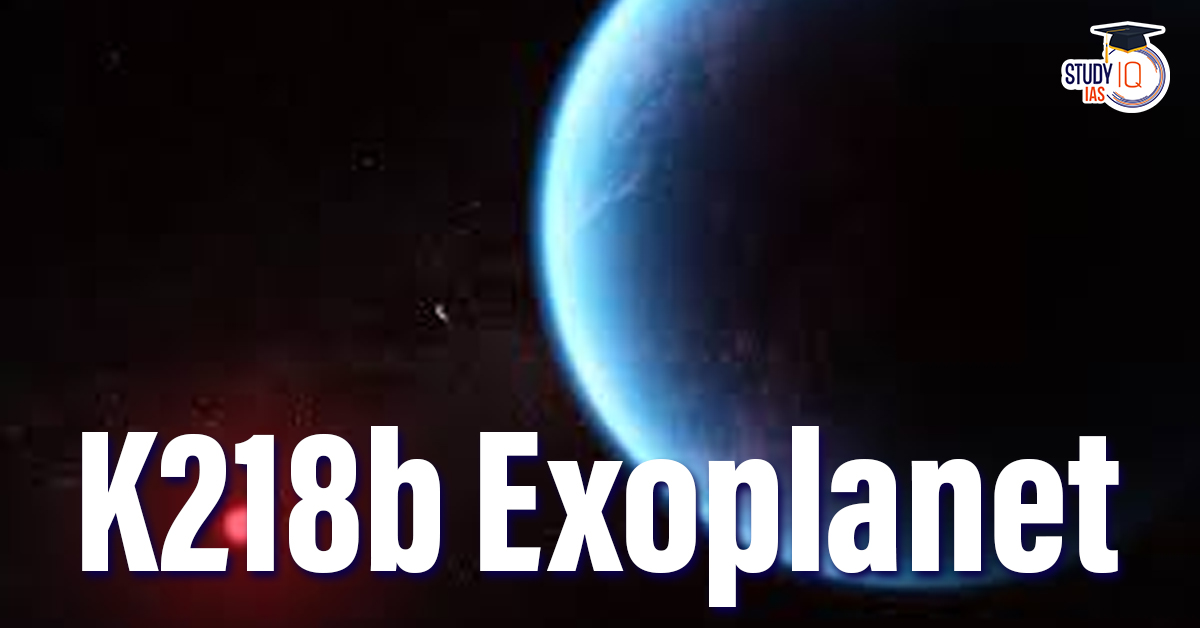- Recently, scientists have detected dimethyl sulphide (DMS) and dimethyl disulphide (DMDS) in the atmosphere of the K2-18b exoplanet.
- The detection was made by a research team from the University of Cambridge using data from the James Webb Space Telescope (JWST).
- These gases are potential biosignatures — substances that (on Earth) are linked to biological activity.
- On Earth these gases are produced through:
- Metabolic processes of microorganisms.
- Decay of small plant-like organisms in the oceans (e.g., phytoplankton).
- This is the first time these gases have been detected outside our solar system.
About K2-18b Exoplanet
- K2-18b Exoplanet is located around 120 light years from Earth.
- Host Star: It orbits a red dwarf star that is smaller and cooler than the Sun.
- It lies within the “habitable zone” — the region around a star where liquid water can exist.
- Past Observations:
- 2019 (Hubble): Detected water vapour in the atmosphere.
- Previous JWST Data: Detected methane and carbon dioxide — both also linked to potential biological processes.


 Navy-Marine Expeditionary Ship Interdict...
Navy-Marine Expeditionary Ship Interdict...
 Vehicle-to-Grid (V2G) Technology and its...
Vehicle-to-Grid (V2G) Technology and its...
 India’s First Full-Stack Quantum Compu...
India’s First Full-Stack Quantum Compu...





















